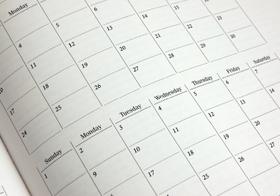In this fictional conversation, a job seeker and I chat about looking for employment in a private school.
Credentials
Q. Do I need to have a teaching certificate to teach in a private school?
A. Not necessarily. It depends on the school. Some schools will employ you without a teaching certificate with the requirement that you obtain one within a stated time frame, typically a year.
Q. Do I need an education degree to teach in a private school?
A. Most private schools value degrees in a subject. For example, if you are presenting yourself as an English teacher, they will look for a bachelor's degree with a major in American or English Language and Literature. The teaching skills and methodology which you could learn if you did an education degree will be useful; however, most private schools will require you to teach in their own proprietary way. After all, that's why parents are sending their children to private school.
Q. Do I need to have a master's degree or a doctorate?
A. Your resume will stand out from the others when you offer a master's degree or terminal degree. Once again, schools understand that a highly-credentialed faculty is a powerful asset when it comes to marketing what they do. If you have started work on your master's or doctorate, be sure to indicate that on your resume. Discuss your further education plans at the interview.
Q. Will schools ask for a curriculum vitae?
A. Some will. Some


























